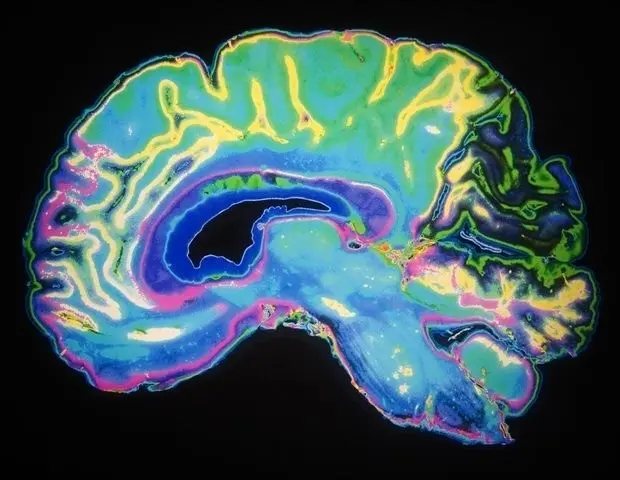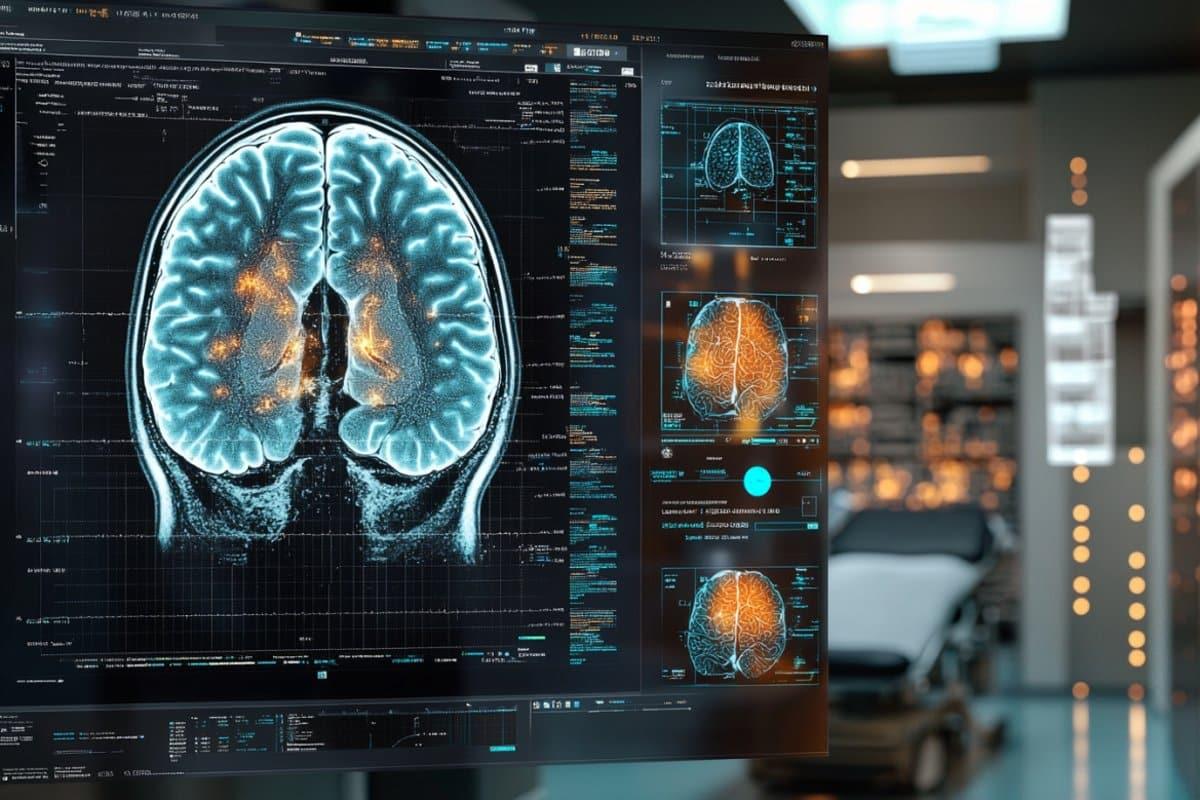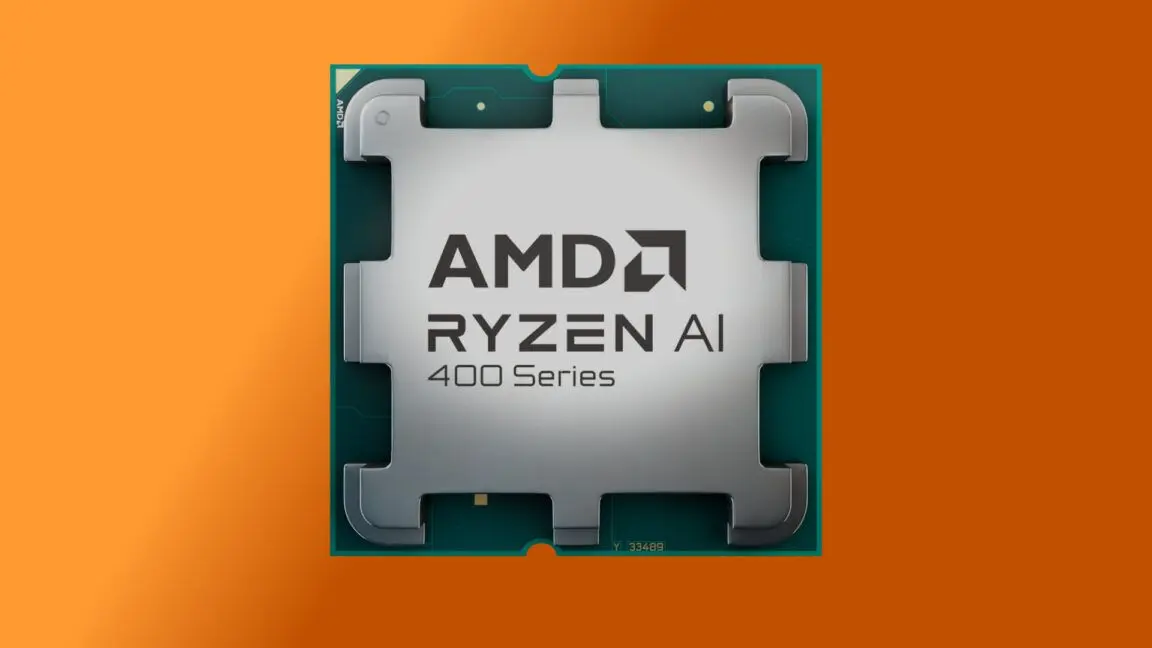AI-Enhanced MRI Technology Promises Improved Brain Disorder Diagnosis
3 Sources
3 Sources
[1]
AI-Enhanced MRIs Show Potential for Brain Abnormality Detection - Neuroscience News
Summary: Researchers have developed a machine learning model that upgrades 3T MRI images to mimic the higher-resolution 7T MRI, providing enhanced detail for detecting brain abnormalities. The synthetic 7T images reveal finer features, such as white matter lesions and subcortical microbleeds, which are often difficult to see with standard MRI systems. This AI-driven approach could improve diagnostic accuracy for conditions like traumatic brain injury (TBI) and multiple sclerosis (MS), though clinical validation is needed before wider use. The new model may ultimately expand access to high-quality imaging insights without needing specialized equipment. This advancement marks a promising intersection of AI and medical imaging technology. At the intersection of AI and medical science, there is growing interest in using machine learning to enhance imaging data captured by magnetic resonance imaging (MRI) technology. Recent studies show that ultra-high-field MRI at 7 Tesla (7T) could have far greater resolution and clinical advantages over high-field MRI at 3T in delineating anatomical structures that are important for identifying and monitoring pathological tissue, particularly in the brain. Most clinical MRI exams in the U.S. are performed with 1.5T or 3T MRI systems. As recently as 2022, the National Institutes of Health documented only about 100 7T MRI machines being used for diagnostic imaging worldwide. Researchers from UC San Francisco developed a machine learning algorithm to enhance 3T MRIs by synthesizing 7T-like images that approximate real 7T MRIs. Their model enhanced pathological tissue with more fidelity for clinical insights and represents a new step toward evaluating clinical applications of synthetic 7T MRI models. The study was presented Oct. 7 at the 27th International Conference on Medical Image Computing and Computer Assisted Intervention (MICCAI). "Our paper introduces a machine-learning model to synthesize high-quality MRIs from lower-quality images. We demonstrate how this AI system improves the visualization and identification of brain abnormalities captured by MRIs in Traumatic Brain Injury," said senior study author Reza Abbasi-Asl, Ph.D., UCSF Assistant Professor of Neurology. "Our findings highlight the promise of AI and machine learning to improve the quality of medical images captured by less advanced imaging systems." UCSF researchers collected imaging data from patients diagnosed with mild traumatic brain injury (TBI) at UCSF. They designed and trained three neural network models to perform image enhancement and 3D image segmentation using the generated synthetic-7T MRIs from the standard 3T MRIs. The images generated with the new models provided enhanced pathological tissue for patients with mild TBI. They selected an example region with white matter lesions and microbleeds in subcortical areas to use for comparison. They found pathological tissue was easier to see in synthesized 7T images. This was evident in the separation of adjacent lesions and the sharper contours of subcortical microbleeds. Additionally, the synthesized 7T images better captured the diverse features within white matter lesions. These observations also highlight the promise of using this technology to improve diagnostic accuracy in neurodegenerative disorders such as multiple sclerosis. While synthetization techniques based on machine learning frameworks demonstrate remarkable performance, their application in clinical settings will require extensive validation. The researchers believe that future work should include extensive clinical assessment of the model findings, clinical rating of model-generated images, and quantification of uncertainties in the model.
[2]
Enhancing MRI with AI to improve diagnosis of brain disorders
At the intersection of AI and medical science, there is growing interest in using machine learning to enhance imaging data captured by magnetic resonance imaging (MRI) technology. Recent studies show that ultra-high-field MRI at 7 Tesla (7T) could have far greater resolution and clinical advantages over high-field MRI at 3T in delineating anatomical structures that are important for identifying and monitoring pathological tissue, particularly in the brain. Most clinical MRI exams in the U.S. are performed with 1.5T or 3T MRI systems. As recently as 2022, the National Institutes of Health documented only about 100 7T MRI machines being used for diagnostic imaging worldwide. Researchers from UC San Francisco developed a machine learning algorithm to enhance 3T MRIs by synthesizing 7T-like images that approximate real 7T MRIs. Their model enhanced pathological tissue with more fidelity for clinical insights and represents a new step toward evaluating clinical applications of synthetic 7T MRI models. The study was presented Oct. 7 at the 27th International Conference on Medical Image Computing and Computer Assisted Intervention (MICCAI). "Our paper introduces a machine-learning model to synthesize high-quality MRIs from lower-quality images. We demonstrate how this AI system improves the visualization and identification of brain abnormalities captured by MRIs in Traumatic Brain Injury," said senior study author Reza Abbasi-Asl, Ph.D., UCSF Assistant Professor of Neurology. "Our findings highlight the promise of AI and machine learning to improve the quality of medical images captured by less advanced imaging systems." Better to see TBI and multiple sclerosis with UCSF researchers collected imaging data from patients diagnosed with mild traumatic brain injury (TBI) at UCSF. They designed and trained three neural network models to perform image enhancement and 3D image segmentation using the generated synthetic-7T MRIs from the standard 3T MRIs. The images generated with the new models provided enhanced pathological tissue for patients with mild TBI. They selected an example region with white matter lesions and microbleeds in subcortical areas to use for comparison. They found pathological tissue was easier to see in synthesized 7T images. This was evident in the separation of adjacent lesions and the sharper contours of subcortical microbleeds. Additionally, the synthesized 7T images better captured the diverse features within white matter lesions. These observations also highlight the promise of using this technology to improve diagnostic accuracy in neurodegenerative disorders such as multiple sclerosis. While synthetization techniques based on machine learning frameworks demonstrate remarkable performance, their application in clinical settings will require extensive validation. The researchers believe that future work should include extensive clinical assessment of the model findings, clinical rating of model-generated images, and quantification of uncertainties in the model.
[3]
Enhancing MRI with AI to Improve Diagnosis of Brai | Newswise
Newswise -- At the intersection of AI and medical science, there is growing interest in using machine learning to enhance imaging data captured by magnetic resonance imaging (MRI) technology. Recent studies show that ultra-high-field MRI at 7 Tesla (7T) could have far greater resolution and clinical advantages over high-field MRI at 3T in delineating anatomical structures that are important for identifying and monitoring pathological tissue, particularly in the brain. Most clinical MRI exams in the U.S. are performed with 1.5T or 3T MRI systems. As recently as 2022, the National Institutes of Health documented only about 100 7T MRI machines being used for diagnostic imaging worldwide. Researchers from UC San Francisco developed a machine learning algorithm to enhance 3T MRIs by synthesizing 7T-like images that approximate real 7T MRIs. Their model enhanced pathological tissue with more fidelity for clinical insights and represents a new step toward evaluating clinical applications of synthetic 7T MRI models. The study was presented Oct. 7 at the 27th International Conference on Medical Image Computing and Computer Assisted Intervention (MICCAI). "Our paper introduces a machine-learning model to synthesize high-quality MRIs from lower-quality images. We demonstrate how this AI system improves the visualization and identification of brain abnormalities captured by MRIs in Traumatic Brain Injury", said senior study author Reza Abbasi-Asl, PhD, UCSF Assistant Professor of Neurology. "Our findings highlight the promise of AI and machine learning to improve the quality of medical images captured by less advanced imaging systems." Better to see TBI and Multiple Sclerosis with UCSF researchers collected imaging data from patients diagnosed with mild traumatic brain injury (TBI) at UCSF. They designed and trained three neural network models to perform image enhancement and 3D image segmentation using the generated synthetic-7T MRIs from the standard 3T MRIs. The images generated with the new models provided enhanced pathological tissue for patients with mild TBI. They selected an example region with white matter lesions and microbleeds in subcortical areas to use for comparison. They found pathological tissue was easier to see in synthesized 7T images. This was evident in the separation of adjacent lesions and the sharper contours of subcortical microbleeds. Additionally, the synthesized 7T images better captured the diverse features within white matter lesions. These observations also highlight the promise of using this technology to improve diagnostic accuracy in neurodegenerative disorders such as multiple sclerosis. While synthesization techniques based on machine learning frameworks demonstrate remarkable performance, their application in clinical settings will require extensive validation. The researchers believe that future work should include extensive clinical assessment of the model findings, clinical rating of model-generated images, and quantification of uncertainties in the model. About UCSF Health: UCSF Health is recognized worldwide for its innovative patient care, reflecting the latest medical knowledge, advanced technologies and pioneering research. It includes the flagship UCSF Medical Center, which is a top-ranked hospital, as well as UCSF Benioff Children's Hospitals, with campuses in San Francisco and Oakland; Langley Porter Psychiatric Hospital and Clinics; UCSF Benioff Children's Physicians; and the UCSF Faculty Practice. These hospitals serve as the academic medical center of the University of California, San Francisco, which is world-renowned for its graduate-level health sciences education and biomedical research. UCSF Health has affiliations with hospitals and health organizations throughout the Bay Area. Visit https://ucsfhealth.org. Follow UCSF Health on Facebook or on Twitter.
Share
Share
Copy Link
Researchers at UCSF have developed an AI model that enhances 3T MRI images to mimic 7T MRI quality, potentially improving the diagnosis of brain disorders like traumatic brain injury and multiple sclerosis.

AI-Powered MRI Enhancement: A Leap Forward in Brain Imaging
Researchers at the University of California, San Francisco (UCSF) have developed a groundbreaking machine learning model that could revolutionize brain imaging diagnostics. This innovative AI system enhances standard 3 Tesla (3T) MRI scans to produce images that closely resemble those from more advanced 7 Tesla (7T) MRI machines, potentially improving the detection and diagnosis of various brain disorders
1
.The Promise of 7T MRI and Current Limitations
Ultra-high-field 7T MRI technology offers superior resolution and clinical advantages over the more common 3T MRI systems, particularly in visualizing critical brain structures. However, 7T MRI machines are scarce, with only about 100 in use worldwide for diagnostic imaging as of 2022, according to the National Institutes of Health
2
.UCSF's AI-Driven Solution
To bridge this gap, UCSF researchers have created an AI algorithm that enhances 3T MRI scans to produce synthetic 7T-like images. This advancement represents a significant step towards making high-quality brain imaging more accessible without the need for specialized equipment
3
.Methodology and Findings
The research team collected imaging data from patients diagnosed with mild traumatic brain injury (TBI) at UCSF. They then designed and trained three neural network models to perform image enhancement and 3D image segmentation, transforming standard 3T MRIs into synthetic 7T images
1
.Key findings include:
- Enhanced visibility of pathological tissue in mild TBI cases
- Improved separation of adjacent lesions
- Sharper contours of subcortical microbleeds
- Better capture of diverse features within white matter lesions
Related Stories
Potential Impact on Diagnosis
The AI-enhanced images show promise in improving diagnostic accuracy for various brain disorders:
-
Traumatic Brain Injury (TBI): The model significantly enhances the visualization of brain abnormalities in TBI patients
2
. -
Multiple Sclerosis (MS): The technology's ability to better capture white matter lesion features suggests potential improvements in MS diagnosis and monitoring
3
.
Future Directions and Challenges
While the results are promising, the researchers emphasize the need for extensive validation before clinical implementation. Future work will focus on:
- Comprehensive clinical assessment of model findings
- Clinical rating of model-generated images
- Quantification of uncertainties in the model
Dr. Reza Abbasi-Asl, UCSF Assistant Professor of Neurology and senior study author, highlighted the potential of this technology, stating, "Our findings highlight the promise of AI and machine learning to improve the quality of medical images captured by less advanced imaging systems"
3
.As this AI-driven approach continues to develop, it could potentially democratize access to high-quality brain imaging, enabling more accurate diagnoses and improved patient care across a wider range of healthcare settings.
References
Summarized by
Navi
[1]
[2]
Related Stories
AI models achieve breakthrough accuracy in diagnosing brain tumors from MRI scans
08 Dec 2025•Health

AI Tool MindGlide Revolutionizes Multiple Sclerosis Treatment Tracking
09 Apr 2025•Health

University of Michigan's Prima AI model reads brain MRI scans in seconds with 97.5% accuracy
06 Feb 2026•Science and Research

Recent Highlights
1
OpenAI secures $110 billion funding round from Amazon, Nvidia, and SoftBank at $730B valuation
Business and Economy

2
Pentagon accepts OpenAI's autonomous weapons restrictions after blacklisting Anthropic
Policy and Regulation

3
Trump orders federal agencies to ban Anthropic after Pentagon dispute over AI surveillance
Policy and Regulation





